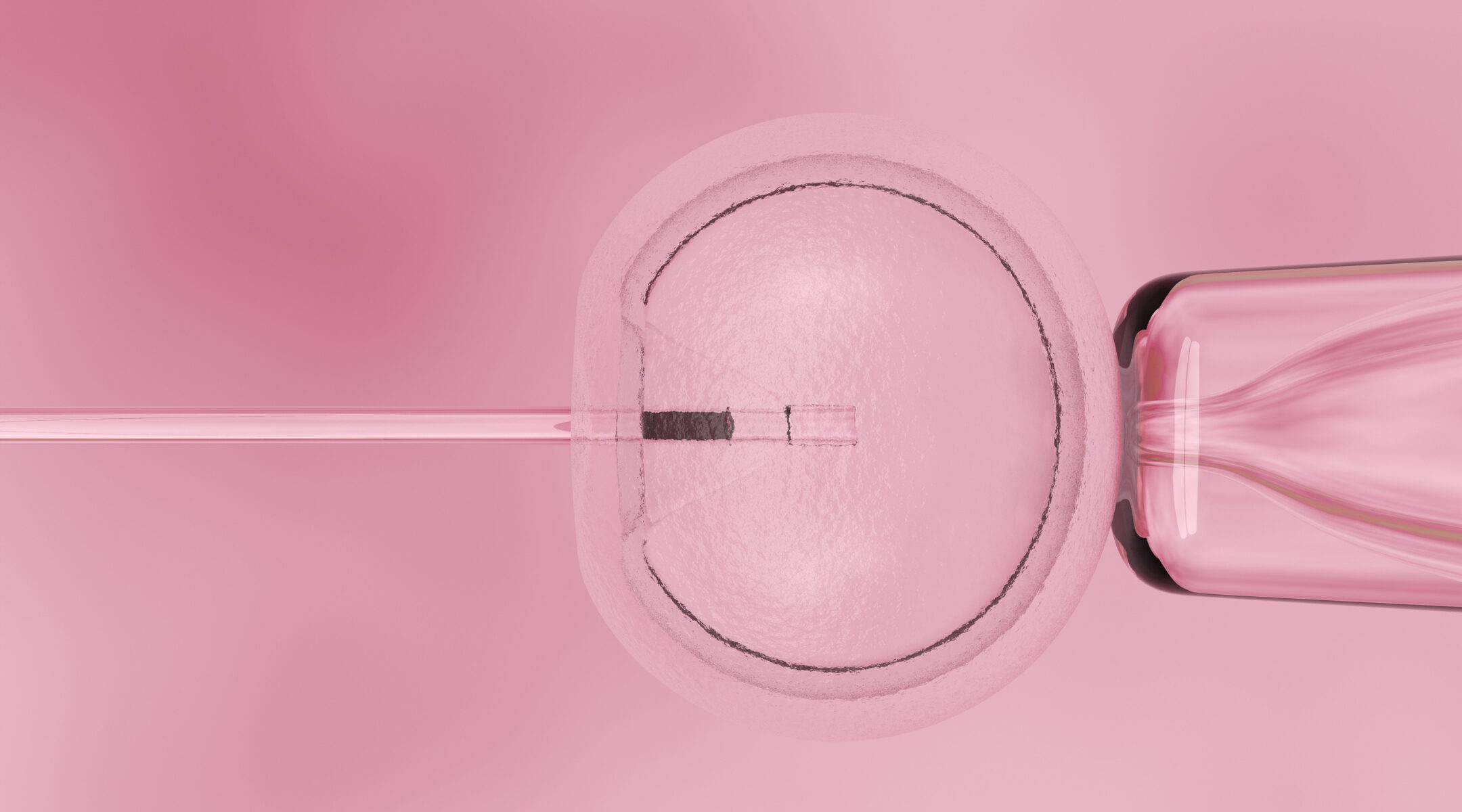(JTA) – Three Jewish women have sued to protest Kentucky’s restrictive abortion laws on religious freedom grounds, arguing that they violate Jewish teachings as to when life begins and place undue burdens on their ability to use in vitro fertilization to achieve pregnancy.
The suit is at least the third religious freedom lawsuit to be filed by Jews against a state abortion restriction since the U.S. Supreme Court overturned Roe v. Wade this summer. It follows a synagogue’s challenge to Florida’s laws and a Jewish pro-choice group’s lawsuit in Indiana.
The Kentucky suit challenges the state’s current law, which was written to go into effect following the Supreme Court’s ruling that ended a constitutional right to abortion; the law bans all abortions after six weeks of pregnancy, with very few exceptions, and defines life as beginning at the moment of fertilization.
The law also forbids the disposal of unborn life “throughout the entire embryonic and fetal stage” — leaving women and their doctors concerned about the implications of IVF, which can result in surplus embryos.
The women behind the lawsuit — Lisa Sobel, Jessica Kalb and Sarah Baron — argue that Kentucky’s definition of when life begins does not comport with Jewish law. They also argue that the law interferes with their religious freedom, they say, because the state would force them to continue to pay to keep embryos produced through IVF frozen indefinitely.
“As a mom, as a woman, this directly affects me, it affects my health care,” Sobel told the Louisville Courier-Journal. “And then it’s a personal affront to my personal religious views, on top of it. As somebody who is a person of faith, that’s just wrong to me.”
“Plaintiff’s religious beliefs demand that they have more children through IVF, yet the law forces Plaintiffs to spend exorbitant fees to keep their embryos frozen indefinitely or face potential felony charges,” the lawsuit states. The three plaintiffs are all in their thirties and say they must rely on IVF for future pregnancies to avoid health risks; Sobel says she and her husband can’t conceive any other way.
While Jewish law is still developing around IVF, most rabbinic opinions agree that embryo donation, an option that some anti-abortion activists urge, is problematic according to halacha, or Jewish law, because of the outside possibility that it could result in unintended incest in the future. They also tend to agree that passively allowing embryos to be destroyed, such as by not refrigerating them, is permissible.
Claiming the state abortion law “substantially burdens” the plaintiffs’ right to religious expression, the suit also says the law is in violation of Kentucky’s Religious Freedom Restoration Act, as well as violating the state’s constitution by granting preference to “theocratic” Christian teachings over other religious beliefs.
The Kentucky lawsuit is part of a newly emerging trend of Jews hoping to use religious freedom protections as a pressure point against state abortion restrictions driven largely by Christian activism. A nondenominational congregation in Florida sued that state over its abortion law in June, saying that its 15-week abortion ban “prohibits Jewish women from practicing their faith free of government intrusion and this violates their privacy rights and religious freedom.”
And last month Hoosier Jews For Choice, a newly formed Indiana Jewish abortion-rights group, sued over Indiana’s own law banning abortions in the state with very few exceptions. That lawsuit, backed by the American Civil Liberties Union, also claimed that the abortion law (which had not yet gone into effect) was in violation of the state’s Religious Freedom Restoration Act.
American Jews support abortion rights more than any other religious group, according to polling. Non-Orthodox Jews have been at the fore of advocacy against the current sweep of abortion legislation, while some Orthodox groups have said they applaud the Dobbs v. Jackson decision while still believing that abortion should be permitted in some cases. Scholars of Jewish law largely agree that it requires abortion when the pregnant person’s health is at risk, though there is disagreement about what constitutes such a risk.
JTA has documented Jewish history in real-time for over a century. Keep our journalism strong by joining us in supporting independent, award-winning reporting.






